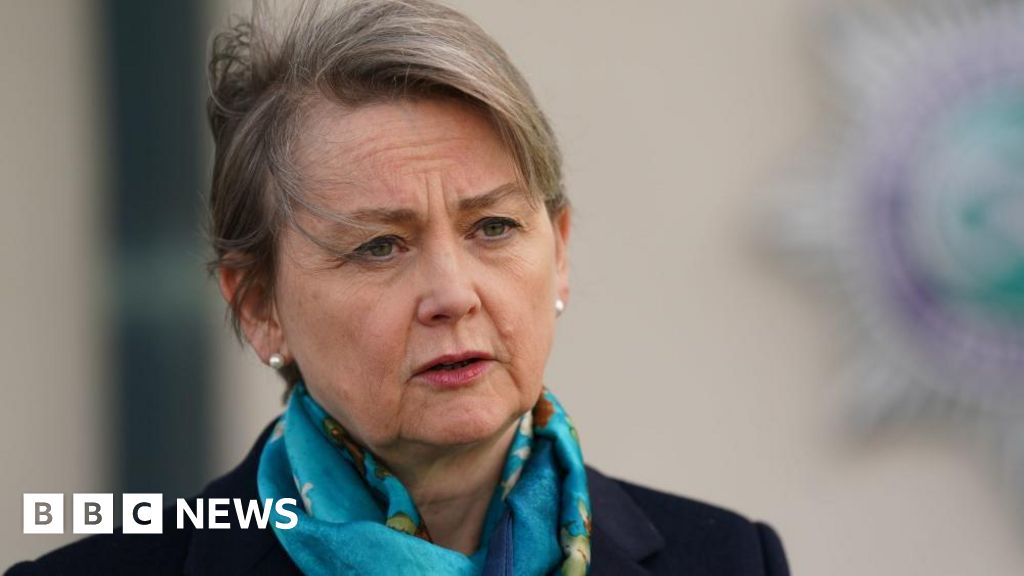ARTICLE AD BOX
By Brian Wheeler
BBC News
Image source, Hannah White
Image caption,Hannah White is deputy director of the Institute for Government think tank
Westminster has been rocked by one scandal after another recently, so how can MPs restore their battered reputation? Parliamentary expert Hannah White has a few ideas.
At the end of her new book on political reform, Held in Contempt, Hannah White comes to a startling conclusion.
Perhaps, she suggests, the only thing that would shake MPs out of their complacency and bring about badly needed change to the Palace of Westminster is if it went up in flames like the cathedral of Notre Dame, in Paris.
"The task of re-creating Parliament in such circumstances would prompt reflection on many previously unthinkable questions about the way our politics operates," she writes.
When we meet, she is keen to stress she is not "wishing a disaster on Westminster".
But, she adds, "it is my observation that things only really change in complex organisations like Parliament when there is a big shock or crisis".
And White is no doubt that things need to change.
The 2008 expenses scandal was an example of a major shock that led to much-needed reform, she argues, but the House of Commons can still feel like an exclusive club run for the benefit of its members.
Too many MPs regard themselves as "special" and exempt from the rules that govern the rest of the country, she claims, and the allegations of bullying, and worse, that continue to surface, as well as the lack of diversity on the Commons benches, are rooted in this sense of entitlement.
Image source, Houses of Parliament Restoration and Renewal
Image caption,The threat of a major fire at Westminster is worryingly real - such is the state of the wiring in the crumbling Gothic edifice
She is also outspoken on the need to simplify Parliament's rules and procedures, which are so arcane and complicated that they are only fully understood by a handful of experts.
As deputy director of the Institute for Government think tank, and a former parliamentary clerk, White is one of those experts. When she began her career in the clerks' office, she dealt with MPs who struggled to understand their place of work, but were too embarrassed to admit it.
"[As an MP] you don't want to say, 'I don't know how it works,' because part of being there, and being an established MP, who people should vote for again, is that you do know how it works.
"So you haven't got an incentive to say to everyone, 'This system is crazily complicated and we ought to do something about it,' because you are pretending that you know everything about it."
Training is available to new MPs, but they are surprisingly resistant to it, says White, and there is no incentive for party managers to insist on it.
"Your whips don't want you to understand procedure. They will tell you what you need to know, and to tell you, therefore, what you ought to do with that information, how you ought to vote.
"If you are a bit more independent-minded and want to strike off on your own, and have your own things you want to achieve, then it can be really difficult."
Some would argue that its ancient rituals and formalities are Parliament's biggest strength, lending proceedings weight and meaning.
Take all that away, and you would potentially end up with a diminished, anaemic institution with all the authority and grandeur of an office Zoom meeting.
Image source, PA Media
Image caption,Westminster provides a dramatic backdrop to democracy
"I am not saying we should ditch it all," says White.
"The public like a lot of the tradition and the flummery as well. But I don't think it's a binary thing - you either have tradition and complexity, all the stuff I argue against, or you have a modern, simplified Parliament with no tradition at all.
"I think you can retain some of the superficial tradition. You are obviously going to retain the history, but unless you have an institution that is prepared to reflect and evolve, you are going to get out-of-date and you are going to eventually become irrelevant."
White is far from the first to call for fundamental reform of Westminster.
Previous Commons Speaker John Bercow liked to present himself as a moderniser. Among his ideas was a shake-up of the Private Member's Bill system, something White calls for in her book.
Private Member's Bills are one of the few ways an average backbench MP can make a real difference, by proposing their own laws. But the system is, quite literally, a lottery. MPs are entered into an annual draw for the right to introduce a bill.
Image source, Jessica Taylor/UK Parliament
Image caption,The annual Private Members' Bills draw is an institution cherished by traditionalists
And even if they are lucky enough to be selected, their bill will almost certainly fail because the government will not allocate enough time for it to be debated.
To modernisers like White, this is a frustrating waste of everyone's time.
But proposals for reform, from a committee of MPs, have been booted into the long grass. At Westminster, there is always something more important to debate than how MPs run their own affairs.
And there is little incentive for the government, or the main opposition party which hopes to take over from the government, to hand more power to potentially troublesome backbenchers.
White argues that the long-running saga of Parliament's restoration is the perfect example of an institution congenitally incapable of reforming itself.
She is among those calling for MPs and peers to move out to a temporary location while the work is carried out, something that was all set to happen, after decades of wrangling, before the process effectively went back to square one.
The historic Palace of Westminster itself, with its warren of corridors and staircases reserved solely for the use of Honourable Members, is the very opposite of the modern, open and inclusive workplace White believes it should be.
Moving out, even temporarily, would be a chance to embrace change, she says.
White urges traditionalists who might balk at the prospect to embrace the forward-looking spirit of the Victorians who rebuilt the Palace of Westminster after a fire in the 1850s, using state-of-the-art technology and materials.
"Instead of how do we preserve what we've got and restore what we had and stop bits falling off the building, you could look at it as - and sell it to the public - as 'we want to modernise the way we do politics.'"
But is this what MPs really want?
There are plenty of modernisers, but there are also plenty who cherish, love even, the rules and traditions that give UK democracy its unique flavour, and who would be vehemently opposed to what they would see as faddish and misguided attempts at "modernisation".
And it is MPs, not think tank directors or political commentators - or the voting public - who will always have the final say.

 3 years ago
113
3 years ago
113








 English (US) ·
English (US) ·